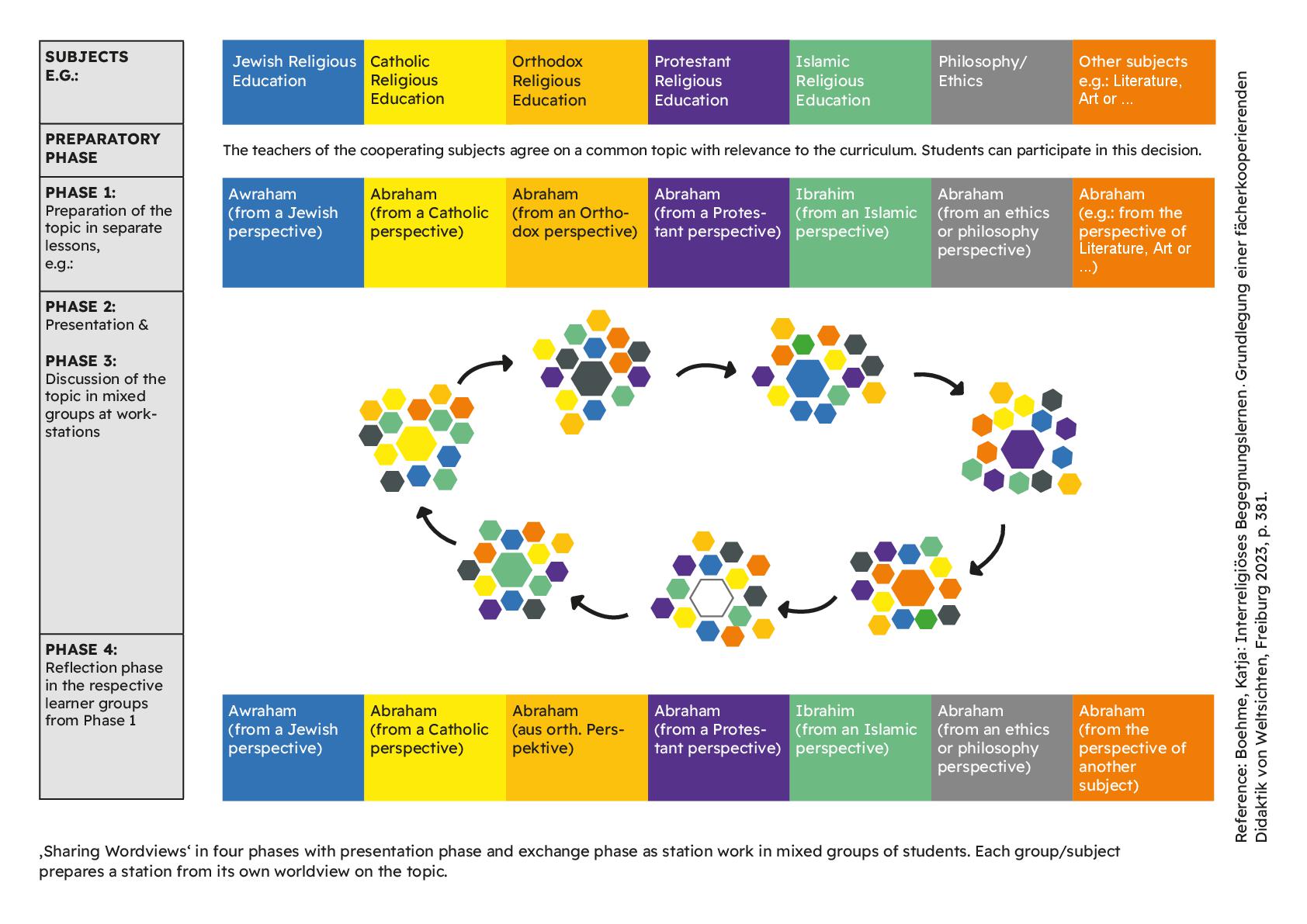Sharing Worldviews : Learning in Encounter for Common Values in Diversity is based on the concept of subject-cooperative and interdisciplinary developed at Heidelberg University of Education. This concept has been evaluated and successfully implemented in schools. Here you can find information about the four-phase model, this concept´s core, as well as thematic and educational material developed for Learning in Encounter.
At the centre of this learning concept is the sharing of different perspectives on one topic by students. Pupils with different collective and individual worldviews meet, sharing ideas on different topics and discuss these. Initially, the topics are prepared during the students’ regular school lessons.
The following four didactic phases, which have been tested in projects at schools since 2002 and in teacher training since 2011, form the base of Learning in Encounter:
Phase 1: The participating partners agree on a specific topic which they will prepare in their own lessons. Under the guidance of their teachers, pupils learn about the topic and prepare a presentation of the topic from a subject-specific perspective. In the material library, you can find examples of topics and lesson materials. (“Materials” on the right)
This preparation is followed by a day of encounter. Two phases take place on this day.
Phase 2: The participating students meet on a day of encounter held either on-site at the school they attend, a participating school or online via video conference rooms. In small, mixed groups, pupils present the common topic to each other from their own perspective and from the perspective of their subject.
Phase 3: The pupils share the perspective of their subject and their personal views on this topic in their small mixed group.
Phase 4: Pupils reflect on the increase of their knowledge on other perspectives and the dialogue´s quality. This phase occurs in their own class.
Depending on the developmental stage of the participating pupils the encounter day´s stations can be arranged according to subjects or sub-topics.


